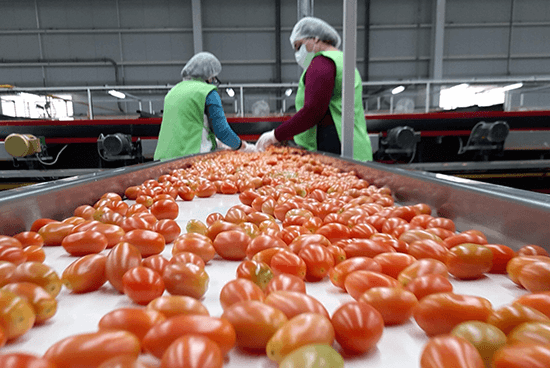The United States announced on Monday that it will impose a 20.91% tariff on Mexican tomatoes starting on July 14.
This new tariff will be set for most U.S. imports of red tomatoes from Mexico.
According to data from the National Customs Administration of Mexico (ANAM) and the Agricultural Markets Consulting Group (GCMA), the United States is the main destination for Mexican tomato exports with 1.87 million tons in 2021.4 That volume represented 98% of Mexican tomato exports in 2021.
This volume represented 98% of Mexican tomato shipments, while the remaining 2% was sent to Canada.
Tariff on Mexican tomatoes
“This measure will allow U.S. tomato producers to compete fairly in the marketplace,” the Commerce Department said Monday in a statement.
In 2024, Mexico produced 3.2 million tons of tomatoes and GCMA projects this production will increase to 3.8 million tons in 2025.
Below are the states in Mexico with the highest tomato production in 2024, in percentage terms, according to GMCA:
- Sinaloa: 19 percent.
- San Luis Potosí: 14 percent.
- Michoacán: 8 percent.
- Baja California Sur: 6 percent.
- Puebla: 5 percent.
Suspension agreement
The GCMA expressed its concern over the unilateral measure of the United States, considering that it distorts bilateral agricultural trade. It emphasized that Mexican tomatoes have been fundamental in offering accessible prices and continuous supply to the U.S. consumer, thanks to their quality and competitiveness.
According to GCMA, the government’s decision responds to pressure from Florida producers, who accuse Mexico of dumping practices without evidence, instead of improving their productivity. The organization reiterated that Mexican producers stand out for their efficiency, low costs and good logistics.
If the measure is implemented, it could affect not only producers and exporters, but also consumers and commercial chains in the United States that value a continuous supply of Mexican tomatoes.
Since 1996, Mexican tomato exports have been governed by suspension agreements. The most recent, signed in 2019, establishes minimum sales prices and excludes tomatoes destined for processing. It also includes inspection mechanisms and rules for organic tomatoes, which must be sold 40% more expensive than conventional tomatoes.

